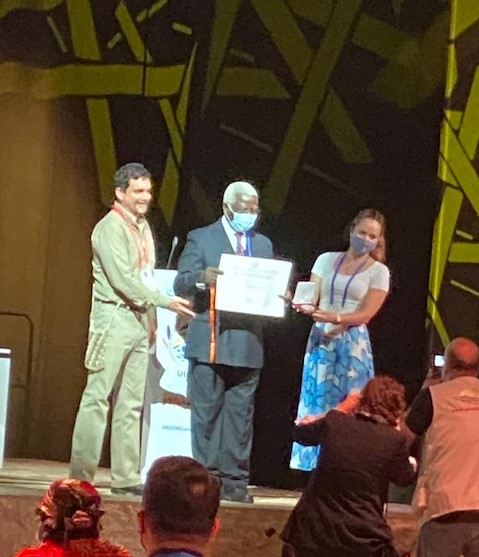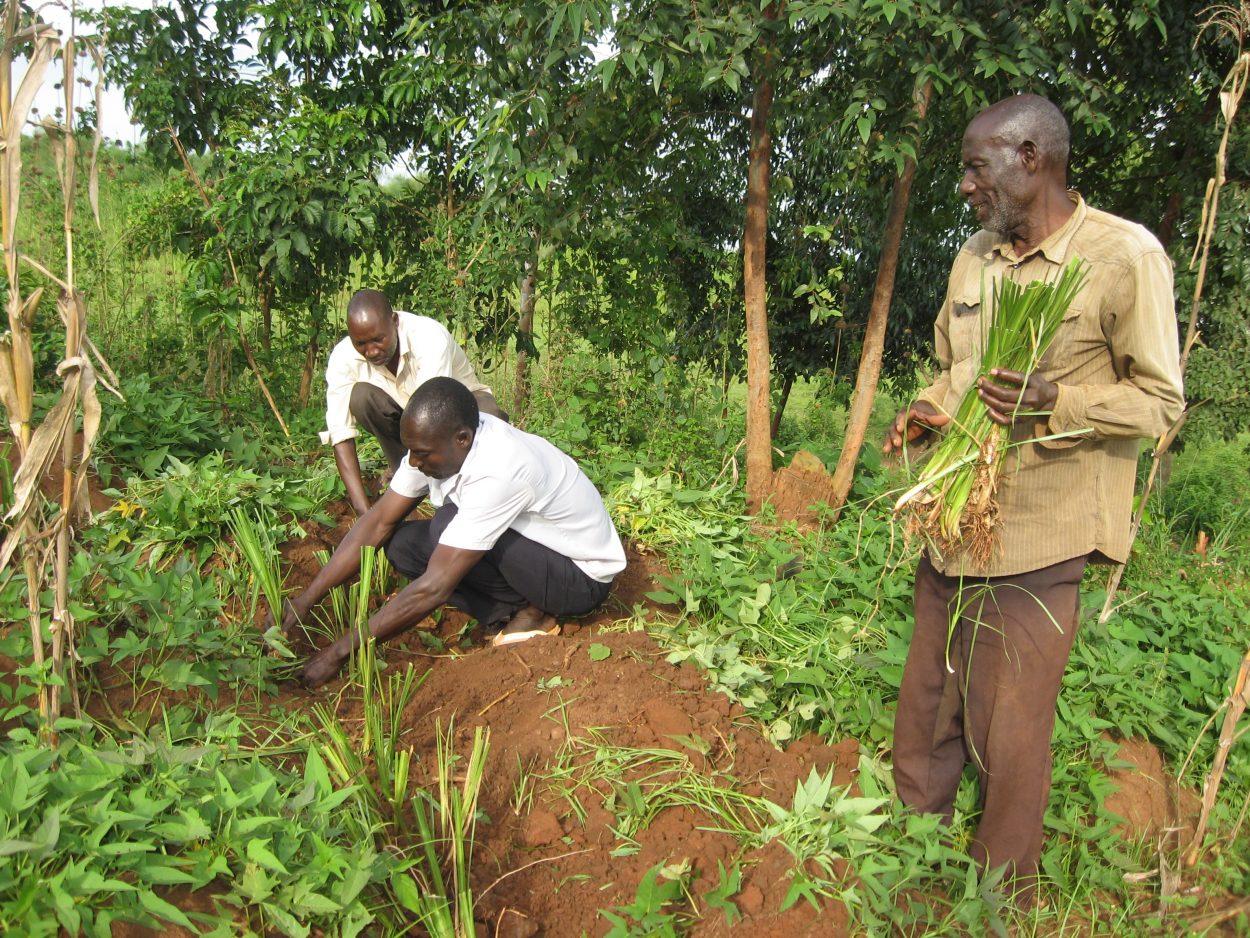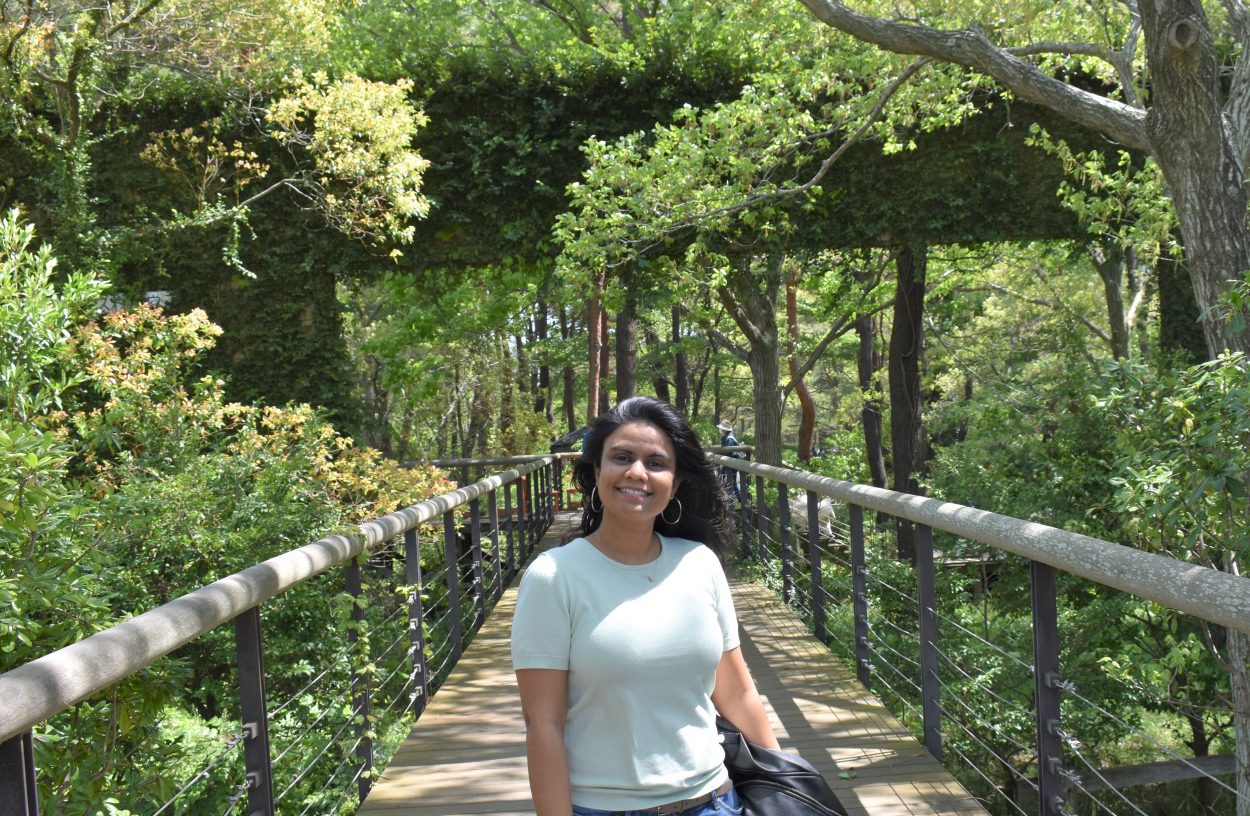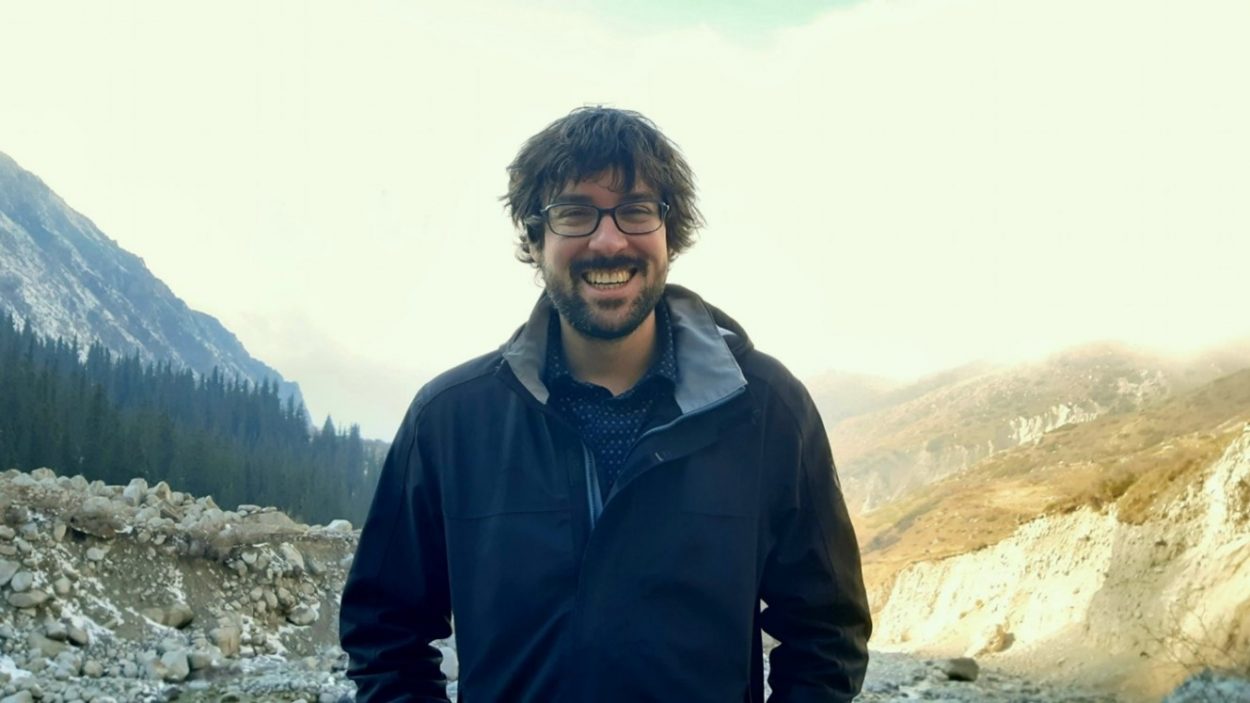IPSI Newsletter

TOPIPSI NewsletterIPSI Newsletter, September 2021
IPSI Newsletter, September 2021
2021.09.28
Dear IPSI members and friends,
Greetings from the IPSI Secretariat in Tokyo, Japan.
While the COVID-19 Pandemic continues to affect lives everywhere, the third meeting of the Convention on Biological Diversity’s Open Ended Working Group of the post-2020 Global Biological Framework (OEWG-3), hosted by Colombia, was held online and IUCN World Conservation Congress was held in Marseille, France, highlighting the urgency and the possible solutions to the issues we face and the importance of commitments of governments and various stakeholders.
This month’s newsletter starts with the wonderful news about Professor Alfred Oteng-Yeboah, Chair of the IPSI Steering Committee, receiving the John C Phillips Medal. We will also commemorate the late Mr. Nimal Hewanila, the founder of Nirmanie Development Foundation, in an article in memory of him and for his lifelong dedication to nature and people. Other announcements include a brief report of the OEWG-3, a call for papers for a special issue on land use management, introduction of new articles, including pictorial report of an SDM project in Uganda from EPIC, publication based on the outcomes of the GEF-Satoyama Project, an introduction of a IPSI case study from Chinese Taipei, Sri Lanka, and messages from former and new Secretariat staff.
As always, please feel free to contact us to submit any new case studies or other information about your activities, or if you have any questions or comments.
IPSI Secretariat

Congratulations: Professor Alfred Oteng-Yeboah, Chair of the IPSI Steering Committee, receives the John C Phillips Memorial Medal
Professor Alfred Oteng-Yeboah, our Chair of the IPSI Steering Committee, attended the International Union for the Conservation of Nature (IUCN) World Conservation Congress (WCC) 2020 in Marseille, France and received the John C Phillips Memorial Medal, IUCN’s highest award which “recognizes outstanding service in international conservation and commemorates the life and work of Dr John C. Phillips, a pioneer of the conservation movement”.
Professor Alfred Oteng-Yeboah, the Board Chair of A Rocha Ghana, chair of the Ghana National Biodiversity Steering Committee and Commissioner at the Ghana Commission for UNESCO, in his award statement, referring to the “three global crisis” and “the tremendous efforts made both in policy level and research level”, said that “if we can protect biodiversity, then land degradation and climate change will be a thing of the past.” Professor Alfred Oteng-Yeboah has shared the following statement with the readers of the IPSI newsletter:
We spend long hours, days, months and years to negotiate on things of nature, purely because of some misunderstandings, vested interests and national pride. If we are really convinced that the ecosystems that give us life are at their tipping points, then our negotiations must be cordial, simple and thoughtful, admitting that the issues pertaining to them are complex.
Nature has rights and these rights must be respected. We must always remain convinced that Nature has its own way of survival. I can see nature’s resilience, closely followed by processes of healing, connections, unity and changes. We must be optimistic.
A big congratulations again to Professor Alfred Oteng-Yeboah! We thank him for his leadership and look forward to working with him in further promoting IPSI with his passion, insights and expertise, together with all our partners and IPSI members.
For his biography on A Rocha Ghana website, see here.
To read about the John C Phillips medal, see here on the IUCN website.
To see the short video clip of the award statement at IUCN WCC 2020 Marseille on 9 September 2021 by the IISD Earth Negotiations Bulletin, see here.
Condolence: Remembering Mr. Nimal Hewanila
We at the IPSI Secretariat are deeply saddened to hear the passing away of Mr. Nimal Hewanila, founder of the Nirmanie Development Foundation (NDF) of Sri Lanka. NDF is an IPSI member and is a recipient of the Satoyama Development Mechanism 2020. Mr. Nimal Hewanila was a person of sincerity and has been an active person working for the Indigenous People and Local Communities and a supporter of the Satoyama Initiative.
His passion and dedication for nature and people have encouraged many IPSI members as well. We received the following message from Dr. Maurizio Farhan Ferarri of Forest Peoples Programme in remembering Mr. Nimal Hewanila:
Nimal Hewanila was a champion for the environment and human wellbeing. His tireless endeavour and dedication over the past decades for the respect, recognition and revitalization of indigenous and local knowledge and the role of indigenous peoples and local communities in biodiversity conservation, sustainable use and restoration has made him a respected advocate for community rights and nature. Always cheerful and thoughtful, he made you feel comfortable and at ease in any situation. His fruitful engagement at the local and national level in Sri Lanka and at the global level, particularly in the UN Convention on Biological Diversity and the Intergovernmental Science-Policy Platform on Biodiversity and Ecosystem Services has made him a great friend and colleague to many people across the planet.
Your thoughtful interventions, sharing of experiences and especially your infectious smile will never be forgotten, Nimal. May people follow your inspiration and wisdom for a better world for everyone!
Our thoughts are with his family and friends. We wish to convey our sincere condolence and wish Mr. Nimal Hewanila rest in peace.
Outcomes of the third meeting of the Open-Ended Working Group on post-2020 Global Biodiversity Framework
Delegates to the Convention on Biological Diversity (CBD) met online from 23 August to 3 September 2021 to take stock of the progress since the second meeting of the Open-Ended Working Group on the Post-2020 Global Biodiversity Framework (OEWG-2), consider submissions received on the first draft of the Global Biodiversity Framework (GBF), and discuss how to address digital sequence information on genetic resources in the context of the GBF.
Over two weeks of plenary sessions and contact groups, Parties, together with a broad range of stakeholders, including UNU-IAS and IPSI delegates, engaged in discussions that centred on refining the goals, targets and major elements of the first GBF draft. Suggestions to improve the 2030 action target’s language were proposed by a large number of stakeholders including indigenous people, CBD women caucus, youth groups, and civil society organizations. The suggestions were briefly discussed during the contact group meetings and were compiled by the thematic co-leads for further deliberations during the second part of the OEWG-3 to be held in-person early next year.
The understanding that the targets should be specific, measurable, ambitious, realistic and time-bound (SMART) and should add up to proposed goals and milestones was expressed by a large number of Parties and observers. They also highlighted the importance of increasing resource mobilization for enabling the implementation of the GBF, building sustainable value chains, and ensuring intergenerational equity.
Delegates discussed the elements needed to make the GBF both ambitious and transformative, and to ensure that its new draft reflects the full range and richness of all stakeholders’ views. The UNU-IAS submitted written text proposals to Contact Group 3 (Targets 9-13) and Contact Group 4 (Targets 14-21) on agenda item 4 on Post-2020 Global Biodiversity Framework. The contributions aimed to improve the language related to landscape approaches, sustainable production and fisheries, conservation of soil biodiversity, conservation of biodiversity in urban areas, and to ensure that the targets have a strong biodiversity conservation focus.
The importance of creating a practical implementation and monitoring framework guided by the National Biodiversity Strategies and Action Plans (NBSAPs) and National Reports was generally agreed by Parties. However, time constraints did not allow discussions regarding the proposed headline indicators and the NBSAPs revision process.
Delegates also helped build political momentum towards the fifteenth Meeting of the Conference of Parties to the CBD (COP-15) by convening a high-level Biodiversity Pre-COP event in the margins of the meeting. The Pre-COP, hosted by Colombia, had the participation of heads of State, and included announcements of commitments by governments, including those who are members of the High Ambition Coalition and signatories to the Leaders’ Pledge for Nature.
The discussion of the Post-2020 GBF will resume during the OEWG-3 session in January 2022 in Geneva, hopefully in-person, where delegates are expected to advance negotiations of the GBF in preparation for its adoption at the COP-15, to take place in two parts in October 2021 and April to May 2022 in Kunming, China.
The reports of the meetings, including the reports by the co-leads of contact groups, are available on the CBD website here.
Call for Papers: Ecosystem Service and Land-Use Change in Asia: Implications for Regional Sustainability
Institute for the Global Environmental Strategies (IGES), our IPSI member is pleased to announce the call for papers for the Special Issue titled “Ecosystem Service and Land-Use Change in Asia: Implications for Regional Sustainability” in the open-access journal Sustainability (ISSN 2071-1050, IF 3.251). Authors from IPSI member organizations are particularly invited to contribute to this special issue by submitting original research and review articles related to this topic. Submissions related to land-use and cover change analysis, biodiversity and ecosystem services, nature’s contributions to people, and landscape sustainability are welcome. The submission deadline is 1 April 2022.
For more details, please visit here
New Article: Global identification and mapping of socioecological production landscapes with the Satoyama Index
Where are socio-ecological production landscapes (SEPLs)? This question has always been with IPSI, but a difficult one to answer due to the multi-dimensional nature of such landscapes. A study led by Prof. Yoji Natori of Akita International University (formerly with an IPSI member Conservation International) demonstrates that the Satoyama Index, which was developed with a biodiversity perspective, can be used to map SEPLs globally. The authors used satellite data and the case studies submitted by IPSI members to map the SEPLs. The study reaffirms that areas relevant to the interest of IPSI is largely outside the existing protected areas, and thus OECMs is expected to be an effective tool to recognize their values and support their conservation. It also suggests that history of land cover and land use changes and, at more local scales, finer categorization of land uses would help in further improving the SEPL identification.
This study is a product of the GEF-Satoyama Project, a collaborative activity of Conservation International, IGES, UNU-IAS and the Global Environment Facility.
This open access article is available here.

Pictorial report from EPIC, Uganda
We have recently received a pictorial report from the Environmental Protection Information Centre (EPIC) on the updates of their project in Lake Victoria, Uganda to apply the Vetiver Grass Technology as a measure to control farm soil erosion. This project has been implemented with a financial support from the Satoyama Development Mechanism (SDM) 2018.
More information on the project can be found on the SDM website here.
For the updated pictorial report, please see here.

Recent Case Study: Forestry Bureau, Council of Agriculture, Chinese Taipei and National Dong Hwa University (NDHU), Chinese Taipei
We are pleased to share a case study submitted by the Forestry Bureau, Council of Agriculture, Chinese Taipei and National Dong Hwa University (NDHU), Chinese Taipei, both IPSI members, titled “Strengthening Taiwan Partnership for the Satoyama Initiative (TPSI), 2018-2020: think global, adapt national, act local”.
This case study highlights the development of the activities and network under the Satoyama Initiative in Chinese Taipei. Taiwan Partnership for the Satoyama Initiative (TPSI) was proposed by NDHU in 2014 and adopted by the Forestry Bureau in 2015. TPSI has developed over the years as an open multistakeholder partnership network, supported by dedicated key stakeholders, including the Forestry Bureau, NDHU, and now 16 IPSI members and non-IPSI members. Authors explain that “promulgation of the 2018-2021 Taiwan Ecological Network (TEN)” played an important role in promoting TPSI. 2018-2021 TEN “marked a significant shift from traditional protected areas conservation approach towards the one based on recognizing rural areas as a link for restoring the balance between natural and urban systems in Taiwan. It also highlighted a fundamental role that SEPLS play in biodiversity conservation through the promotion of sustainable agricultural practices and revival of rural communities”. TPSI has been working on on-the ground activities, holding regional meetings, bringing together stakeholders, restoring fragmented ecosystems, creating connectivity between different landscape elements, and actively participating in activities of IPSI.
For details of the Case Study, please see here on the IPSI website.

Himangana Gupta at Hitachi Seaside Park
Message from Dr. Himangana Gupta, JSPS-UNU Postdoctoral fellow
Dear IPSI members,
I had a great pleasure in working as part of the IPSI Secretariat during the last two years. I could connect with your work through the case studies submitted to IPSI. I was intrigued by the variety of response strategies implemented to tackle various drivers and impacts, especially in the mountain socio-ecological production landscapes (SEPL) of the world. I realize today what a unique platform IPSI is! Despite several efforts by the multi-lateral environmental agreements to set up various information platforms, this one made its mark being one of the only platforms that directly engages with the civil society and indigenous peoples and local communities. Definitely, my experience with IPSI will keep me drawn to its objectives and tasks in the coming years, although I am now back in India.
You may have noticed some of my work and publications in the previous newsletters. I would like to share with you that I have been working on a Himalayan SEPL to explore the community-biodiversity-climate nexus in the region. COVID-19 made it impossible to conduct many field visits to the area. But luckily, one visit was possible before the pandemic struck. Some visits to the SEPLS in Japan taught me many lessons on human-nature harmony. In my field area in the Himalayas, tribal communities manage the SEPL with their high dependency on biodiversity. However, the non-inclusion of proximate stakeholder concerns and priorities, while making important developmental decisions, has disrupted the ecological functioning in the region and the multiple functions derived from this landscape. Therefore, nature’s direct benefits to the people stand compromised at a time when extreme events are rising with more intensity as a result of unbridled and irrational construction activities. Here’s a look:
https://www.youtube.com/watch?v=5PsQmQpdSfk&t=10s
Many of you may have also struggled with various challenges in your SEPLS, despite which you made consistent efforts for conservation. Although meagre, the global biodiversity framework aims to conserve 30% of the earth’s ecosystems. Just like charity, transformation begins at home. Your local level initiatives will form the basis for global transformation and achievement of future biodiversity targets. Therefore, I am happy that this platform has made it possible to disseminate best practices implemented by you in the community managed landscapes and other effective area-based conservation measures (OECMs). The future targets are dependent on these ecosystems, as the low-hanging fruits have already been plucked.
I wish great success and a long life to this initiative. I would like to also thank the entire IPSI Secretariat team who work tirelessly on various projects and maintain this platform efficiently. I am happy to be a part of it and to receive generous support from the IPSI Secretariat for my ideas and research activities.
Himangana

Mr. Leles in a visit to the Ala Archa National Park in the Tian Shan mountains, Kyrgyzstan
Message from new IPSI Secretariat staff: Bruno Leles
Dear IPSI Members,
It is a great honor to join the Secretariat of the Satoyama Initiative in Tokyo as the new Partnerships Associate in this very important time.
A few months ago, the Intergovernmental Panel on Climate Change issued what the UN Secretary-General called a “code-red for humanity”, reminding us that climate change, if not reverted, will result in catastrophic consequences for nature and people. At the same time, biodiversity is declining globally at rates unprecedented in human history, and the COVID-19 pandemic has added numerous hurdles for our societies, economies and health systems to collectively overcome. These challenges were shown to be interconnected by similar root causes in the recent UNU Interconnected Disaster Risk report. Extreme weather events and human-made disasters can build on the impacts of the past and pave the way for future disasters. But the nature holds the solution to break this chain and reverse the crisis.
On the bright side, the world has never been so engaged in reforming our food systems, our environmental governance structures, and our production and consumption habits. The negotiations of the post-2020 global biodiversity framework and the recent launching of the UN Decade on Ecosystem Restoration represent the opportunity to set an ambitious agenda for the planet, and for achieving societies in harmony with nature.
Landscapes and seascapes approaches, and especially socio-ecological production landscapes and seascapes (SEPLS), created and maintained by you, are powerful tools to protect and restore the biodiversity and ecosystem services we all need for socio-economic and sustainable development. It can create nature-based solutions that capture carbon, buffer against extreme events and zoonotic diseases, and empower indigenous peoples and local communities to conserve and share their traditional knowledge.
As a Partnerships Associate, I hope to help you to effectively implement SEPLS and conserve nature, and to link and mobilize the contributions of diverse IPSI partners from local to global. Mr. António Guterres, Secretary-General of the United Nations, said recently that making peace with nature is the defining task of the coming decades, and the UN central objective is to build a global coalition to transform how we produce our food and manage our water, land and oceans. Working together as a strong Partnership of governments, civil society organizations, indigenous people and local communities, academia, private sector, and international organizations we can make a better world for people and the planet.
I look forward to working with all of you.
Warmest regards,
Bruno Leles
Contact
Please be sure to let the Secretariat know if there are any changes in your e-mail address or contact information.
Secretariat of the International Partnership for the Satoyama Initiative
United Nations University Institute for the Advanced Study of Sustainability (UNU-IAS)
5–53–70 Jingumae
Shibuya-ku, Tokyo 150-8925
Japan
Tel: +81 3-5467-1212
Fax: +81 3-3499-2828
Email: isi@unu.edu
If you have been forwarded this newsletter and would like to SUBSCRIBE, you can do so on the IPSI website here.


